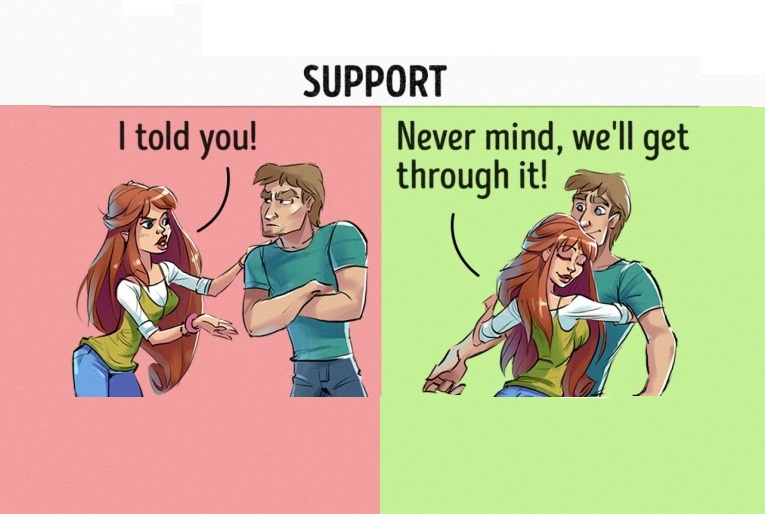Credit card have been a popular mode of payment in the market for several years. Yet, many hesitate to own one due to certain misconceptions lurking in their minds. Hence, they refuse to use them.
Are you in the same boat? If any such thought holds you from applying for a credit card, wait a moment. Let’s debunk common credit card myths for you.
Myth 1: All Credit Card Interest Rates are the Same
Absolutely not! The interest rates on credit cards vary based on different kinds of balances and charges. So you’ll pay different rates for balance transfers and regular purchases.
Instead, the amount you pay above the due minimum payment automatically applies to the highest interest rate balance.
Myth 2: Carry a Balance to Build Your Credit Score
Avoid keeping a high balance if you regularly use the card. Actively using a credit card is necessary, but not carrying a balance to demonstrate responsible credit use.
Always make the on-time payment and more than the minimum if you can. Else you’ll end up paying more interest. Besides, lenders will consider you untrustworthy for carrying a high credit card balance for a long.
Myth 3: One Credit Card is More Than Enough
This misconception is untrue. Using many cards doesn’t hurt your credit score, but when you don’t use them wisely.
When you use all credit cards responsibly, it’ll create a good impression on future lenders. The credit report will indicate the cardholder has excellent financial skills in managing various credit accounts.
Owning more than one credit card also acts as a backup if a merchant doesn’t accept one of them. Further, keeping various cards allows you to maximize rewards. Since all credit issuing companies offer reward plans, you can switch from one card to another for different purchases.
You can use a card offering better incentives for online transactions, like playing on the best credit card casinos. However, switch to another credit card with reward plans for dining.
Thus, responsible use of credit is the key to keeping multiple cards and maintaining a good credit score. You even get a higher overall credit limit on using various cards.
Myth 4: Repaying Debt Clears Negative Activities
Paying off credit doesn’t remove the negative points. The evidence of that debt usually punches into your credit report for years.
Of course, getting overdue card debts back on track is crucial. However, the credit report information works on a points system.
Points increase for positive activity while they decrease during negative usage.
The main culprit that creates negative information on your credit report are defaults, consequent late and missed payments. Unfortunately, such data can stay on your credit score for around seven to ten years. It’ll show even after closing your credit card!
On the other hand, timely paid-off accounts on your credit report indicate responsible usage of your card. Thus, paying off debts timely and in full is your ultimate solution.
Myth 5: Checking Credit History Hurts the Credit Score
Many factors can negatively impact your credit scores. Checking your credit history isn’t one of them. It’s a soft pull that allows credit cardholders to check their credit history.
With credit score reports, lenders can evaluate your likelihood of paying debt on time. It’s a hard pull; hence, your credit score gets dinged.
So reviewing it once or twice a year to track your expenses won’t hurt the score.
Myth 6: Credit Cardholders Get Good and Bad Ratings
There’s no “good” and “bad” score, period. Credit reporting bureaus use a person’s debt information before allocating a credit score.
Basically, they measure the risk to understand if it meets the credit extension criteria. Besides, there are many more parameters that a lender considers for credit score calculation.
Myth 7: Close Unused Credit Card
Consider it a myth, not financial advice. Closing your unused credit card will negatively affect your credit score.
It’ll hurt the utilization ratio due to less overall credit line, eventually damaging your credit score. Besides, this move will bring down your Average Age of Accounts.
So only close an inactive card if it has an annual fee.
FAQs
What are the risks of using a credit card online?
Identity theft is a primary concern for cardholders when using credit cards online. So make sure to use a secure wireless connection to protect your card details and identity from the eyes of third-party users. Besides, only use cards on SSL or TSL-encrypted websites.
Do all credit cards have high-interest rates?
No, all credit card companies don’t charge high-interest rates. It depends on various factors set by the card issuing company, such as the card type and your credit history. You’ll also find cards with no interest rates valid for a specific time.
What does the Average Age of Accounts mean?
AAOA shows lenders your experience with credit. To calculate, divide the total monthly ages of all the credit accounts by the number of accounts. It can include the average age of credit cards, mortgages, student loans, or car loans.
What is a good credit utilization ratio?
Your utilization ratio generally should be 20 to 30 percent of the total credit limit. It shows that you effectively manage your debts and build a good score.
Final Verdict
So stop believing these credit card myths. Credit cards are a fantastic source for building a healthy score if used wisely. Focus on paying your credits on time and avoiding extravagant purchases when planning to buy one for yourself. Rest assured, your credit history will speak for you.
Also Read More:- The Psychological Impact of Gambling Influencers on Their Audience


















